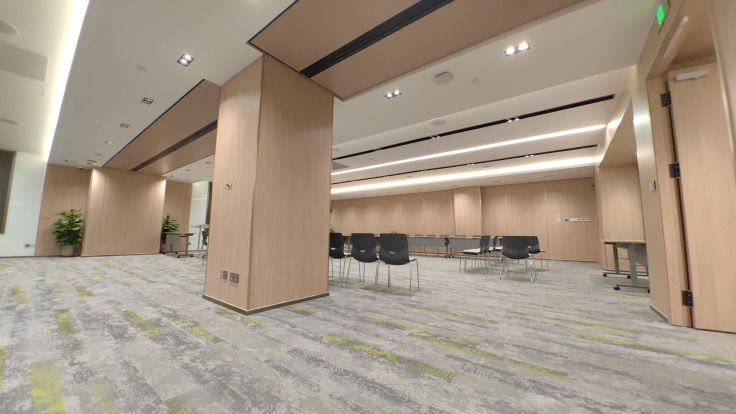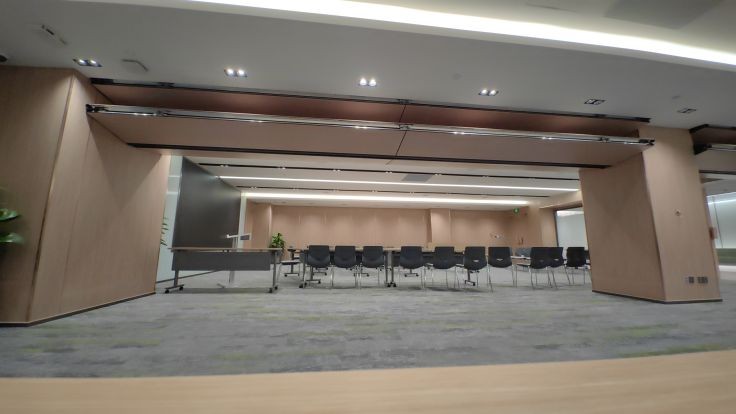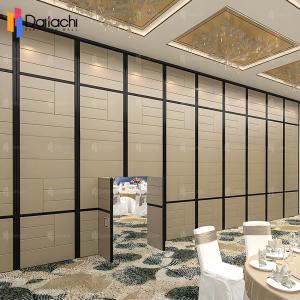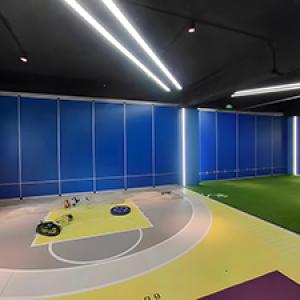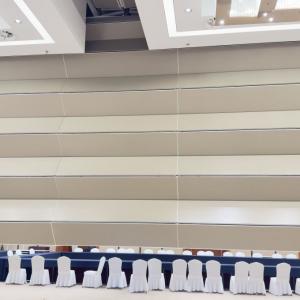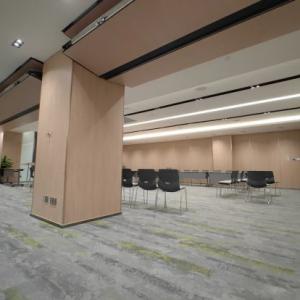Description
Partition walls are non-load-bearing walls used to divide interior spaces within buildings. They serve various purposes such as creating separate rooms, dividing large spaces into smaller areas, providing privacy, and improving the functionality of a space. Here's an overview of partition walls, their types, materials, and applications:
Types of Partition Walls:
Drywall Partitions:
Gypsum Board: Most common type, constructed using gypsum plasterboards.
Metal Studs: Framed with metal studs and covered with gypsum boards.
Soundproof: Designed to provide acoustic insulation, used in offices, studios, etc.
Glass Partitions:
Full-height: Floor-to-ceiling glass panels, offering transparency and light transmission.
Half-height or Modular: Smaller glass panels used to divide spaces while maintaining visual connection.
Frameless: Minimalist design, maximizing light and openness.
Wooden Partitions:
Solid Wood: Provides warmth and aesthetic appeal, used in residential and commercial spaces.
Wood Veneer: Thin layers of wood applied to other materials like plywood or MDF for cost-effectiveness.
Movable Partitions:
Sliding: Panels slide along a track to open or close the partition.
Folding: Panels fold like an accordion to stack to one side when not in use.
Operable Walls: Large panels that can be moved manually or motorized to create flexible spaces in conference centers, ballrooms, etc.
Curtain Partitions:
Fabric or Vinyl Curtains: Lightweight and flexible, used in temporary or semi-permanent settings like hospitals, classrooms, etc.
Operable Curtains: Motorized curtains that can be opened or closed electronically.
Materials Used:
Gypsum: Commonly used for drywall partitions due to its fire-resistant and soundproofing properties.
Glass: Provides transparency and enhances natural light flow between spaces.
Metal: Used in framing for strength and durability, especially in metal stud partitions.
Wood: Offers warmth, aesthetics, and acoustic properties depending on the type of wood.
Plastic or Vinyl: Lightweight and used in curtain partitions for temporary divisions.
Composite Materials: Combining different materials for specific performance characteristics like acoustics, fire resistance, or aesthetics.
Applications:
Commercial Spaces: Offices, conference rooms, retail stores, hotels.
Residential Settings: Apartments, houses, condominiums.
Educational Facilities: Schools, universities, classrooms.
Healthcare: Hospitals, clinics, medical offices.
Hospitality: Restaurants, bars, event venues.
Industrial: Factories, warehouses, production facilities.
Considerations:
Sound Insulation: Depending on the use, consider partitions with adequate soundproofing properties.
Fire Safety: Ensure partitions meet building code requirements for fire resistance where necessary.
Aesthetics: Choose materials and designs that complement the overall interior design of the space.
Functionality: Select partition types that offer the desired level of flexibility and ease of use.
Maintenance: Consider ease of cleaning and maintenance requirements for long-term durability.
Types of Partition Walls:
Drywall Partitions:
Gypsum Board: Most common type, constructed using gypsum plasterboards.
Metal Studs: Framed with metal studs and covered with gypsum boards.
Soundproof: Designed to provide acoustic insulation, used in offices, studios, etc.
Glass Partitions:
Full-height: Floor-to-ceiling glass panels, offering transparency and light transmission.
Half-height or Modular: Smaller glass panels used to divide spaces while maintaining visual connection.
Frameless: Minimalist design, maximizing light and openness.
Wooden Partitions:
Solid Wood: Provides warmth and aesthetic appeal, used in residential and commercial spaces.
Wood Veneer: Thin layers of wood applied to other materials like plywood or MDF for cost-effectiveness.
Movable Partitions:
Sliding: Panels slide along a track to open or close the partition.
Folding: Panels fold like an accordion to stack to one side when not in use.
Operable Walls: Large panels that can be moved manually or motorized to create flexible spaces in conference centers, ballrooms, etc.
Curtain Partitions:
Fabric or Vinyl Curtains: Lightweight and flexible, used in temporary or semi-permanent settings like hospitals, classrooms, etc.
Operable Curtains: Motorized curtains that can be opened or closed electronically.
Materials Used:
Gypsum: Commonly used for drywall partitions due to its fire-resistant and soundproofing properties.
Glass: Provides transparency and enhances natural light flow between spaces.
Metal: Used in framing for strength and durability, especially in metal stud partitions.
Wood: Offers warmth, aesthetics, and acoustic properties depending on the type of wood.
Plastic or Vinyl: Lightweight and used in curtain partitions for temporary divisions.
Composite Materials: Combining different materials for specific performance characteristics like acoustics, fire resistance, or aesthetics.
Applications:
Commercial Spaces: Offices, conference rooms, retail stores, hotels.
Residential Settings: Apartments, houses, condominiums.
Educational Facilities: Schools, universities, classrooms.
Healthcare: Hospitals, clinics, medical offices.
Hospitality: Restaurants, bars, event venues.
Industrial: Factories, warehouses, production facilities.
Considerations:
Sound Insulation: Depending on the use, consider partitions with adequate soundproofing properties.
Fire Safety: Ensure partitions meet building code requirements for fire resistance where necessary.
Aesthetics: Choose materials and designs that complement the overall interior design of the space.
Functionality: Select partition types that offer the desired level of flexibility and ease of use.
Maintenance: Consider ease of cleaning and maintenance requirements for long-term durability.
When selecting partition walls for a specific project in Dubai, consider consulting with suppliers or contractors familiar with local building regulations and standards to ensure compliance and optimal performance.
